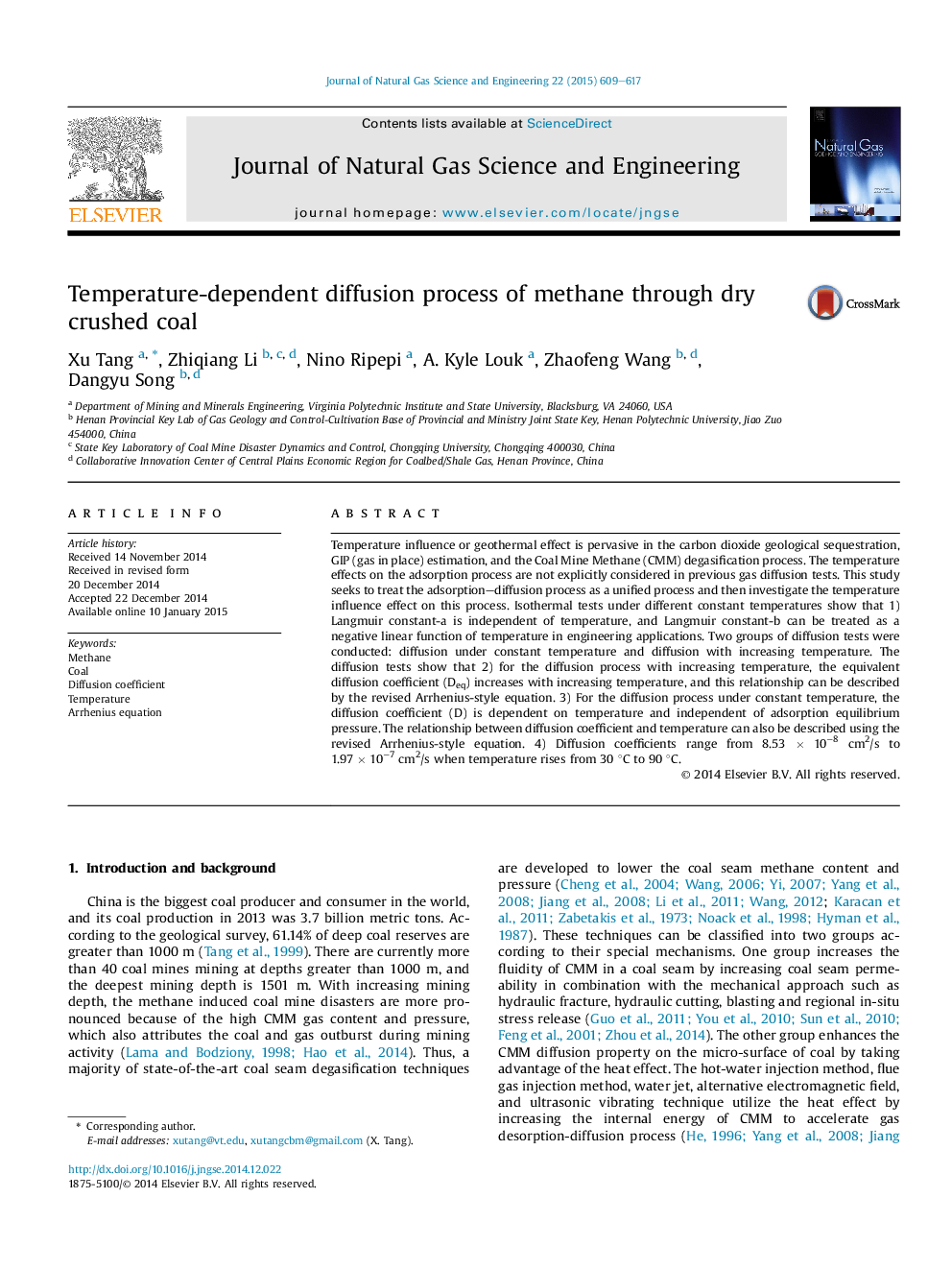| Article ID | Journal | Published Year | Pages | File Type |
|---|---|---|---|---|
| 1757846 | Journal of Natural Gas Science and Engineering | 2015 | 9 Pages |
•The adsorption–diffusion process was treated as a unified process and the temperature influence effect was investigated.•Temperature influenced Langmuir sorption equation was introduced based isothermal test results under different temperatures.•For non-isothermal diffusion process, the equivalent diffusion coefficient increases with increasing temperature.•For isothermal diffusion process, the diffusion coefficient is dependent on temperature and independent of equilibrium pressure.•The relationship between diffusion coefficient and temperature can be described by the revised Arrhenius equation.
Temperature influence or geothermal effect is pervasive in the carbon dioxide geological sequestration, GIP (gas in place) estimation, and the Coal Mine Methane (CMM) degasification process. The temperature effects on the adsorption process are not explicitly considered in previous gas diffusion tests. This study seeks to treat the adsorption–diffusion process as a unified process and then investigate the temperature influence effect on this process. Isothermal tests under different constant temperatures show that 1) Langmuir constant-a is independent of temperature, and Langmuir constant-b can be treated as a negative linear function of temperature in engineering applications. Two groups of diffusion tests were conducted: diffusion under constant temperature and diffusion with increasing temperature. The diffusion tests show that 2) for the diffusion process with increasing temperature, the equivalent diffusion coefficient (Deq) increases with increasing temperature, and this relationship can be described by the revised Arrhenius-style equation. 3) For the diffusion process under constant temperature, the diffusion coefficient (D) is dependent on temperature and independent of adsorption equilibrium pressure. The relationship between diffusion coefficient and temperature can also be described using the revised Arrhenius-style equation. 4) Diffusion coefficients range from 8.53 × 10−8 cm2/s to 1.97 × 10−7 cm2/s when temperature rises from 30 °C to 90 °C.
